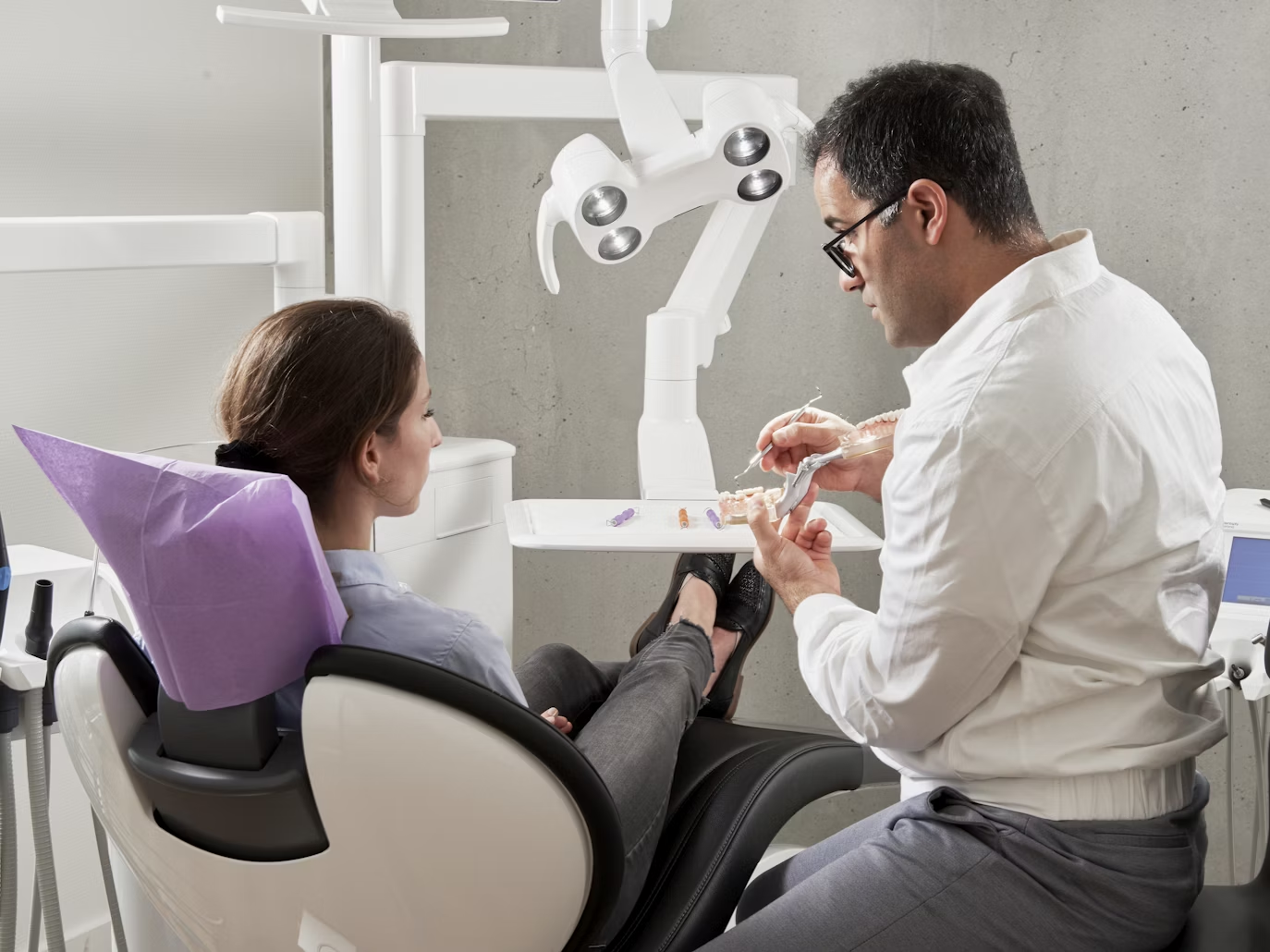Alright dentists, buckle up for some real talk on the legalese intertwined with your world of molars and wisdom teeth. We’re about to chisel away at crucial legal aspects that might not be as fun as a successful root canal, but hey, they’re pivotal for keeping your practice grin-worthy.
So, here are four important legal considerations for dental practices – followed by a look at when it’s time to hire a lawyer to help you with your legal matters.

Image source: https://unsplash.com/photos/man-in-white-dress-shirt-sitting-on-black-office-rolling-chair-QA9fRIi6sFw
1. Signing Practice Purchase Agreements
Dive into the world of dental deals and you’ll see why one-size-fits-all contracts just don’t cut it. In our unique dental cosmos, a typical business purchase agreement might as well be cotton rolls trying to do a suction’s job. Nope!
Whether you’re looking to get a new operatory throne or new premises, having an ironclad, tailor-made contract isn’t just smart—it’s non-negotiable for safeguarding your stakes.
This isn’t about filling cavities; it’s about crafting agreements that outline all the nitty-gritty specifics only dentists can truly appreciate. Don’t skimp on this – get that detailed legal blueprint in place to ensure everything is clean and polished for takeover day.
2. Choosing a Corporate Structure
Think of forming a corporation for your practice as crafting the perfect night guard—it’s about protection and proper alignment. Going corporate isn’t just putting on a fancy lab coat; it’s about legally defining your business entity to shield personal assets from professional turbulence.
The drill here is to choose whether an S-Corp or a C-Corp best aligns with your practice’s goals and tax strategy—it’s nuanced, like deciding between amalgam or composite for that cavity.
Get clear guidance on the benefits each structure offers because laying down this legal groundwork is as critical as setting solid roots for implants.
3. Ensuring Patient Confidentiality
For dental practices, patient confidentiality is serious business and mishandling it can bite back hard.
So, make sure your practice has robust systems to secure patient data because any leaks could mean facing fierce fines or worse.
It’s simple: Treat patient privacy like you would a dental emergency—address it promptly and properly to prevent further complications.
4. Adhering to Employment Law
Whether you’re running a solo practice or leading a team, knowing the ins and outs of employment law is crucial. It’s like periodontal probing for your practice—you’ve got to gauge the depth to prevent disease.
Fair labour practices, overtime regulations, and appropriate handling of employee grievances are just some areas that can trip you up if neglected.
Stay on top of these legalities to ensure smooth operations at your practice; consider them as part of your daily checklist, right next to sterilisation protocols.
Tapping in the Experts: When to Call a Lawyer
Here’s the deal, when legal jargon starts to sound as complex as explaining a palatal expander to a five-year-old, it’s time to tag in the pros. Facing intricate contract negotiations or skirmishing through employment law minefields? Maybe you’re neck-deep in a compliance conundrum? That’s also your cue to get professional legal advice.
In fact, it’s best to have a lawyer on hand throughout your business operations so you can quickly ask questions and get legal matters resolved quickly when they arise.
Reach out to specialists such as the dental attorneys Wood and Morgan, who provide unparalleled legal support for dentists. These maestros of law can navigate through any tangled legal floss with grace.
Don’t wait until you’ve got a full-blown abscess of trouble—preventive care is key!
The Takeaway
We’ve only listed a few of the legal considerations for dentist practices, but there are plenty more – from dealing with tax legalities to crafting shareholder agreements.
So, make sure you’re familiar with the different types of legal issues that could arise – and be prepared by having a professional and experienced dental lawyer by your side.

















